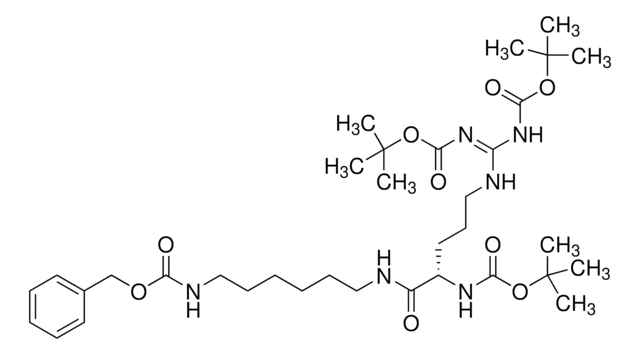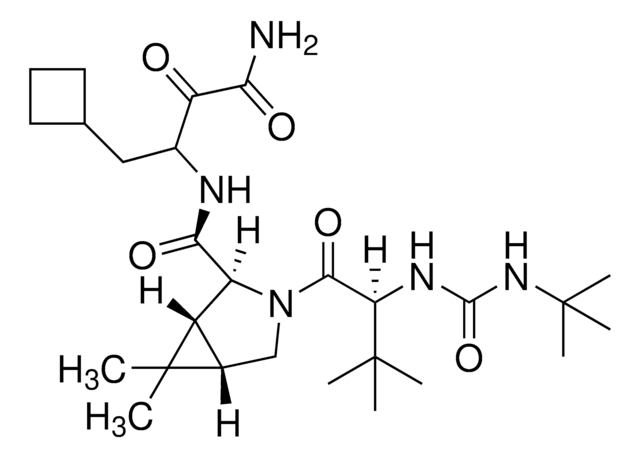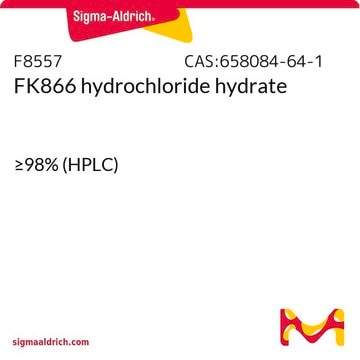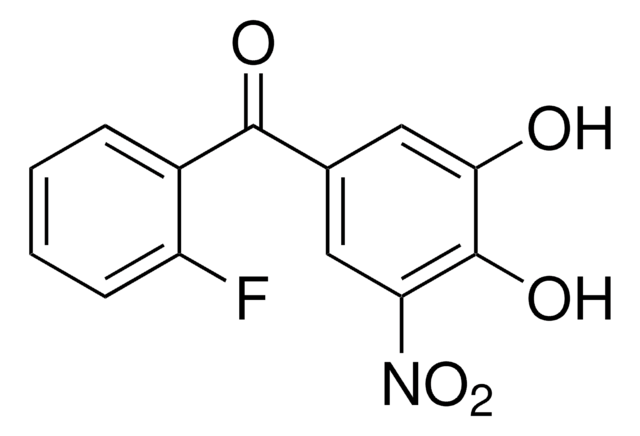Wichtige Dokumente
SML3236
UNC10201652
≥98 mg/mL (HPLC)
Synonym(e):
4-(8-(piperazin-1-yl)-1,2,3,4-tetrahydro-[1,2,3]triazino[4′,5′:4,5]thieno[2,3-c]isoquinolin-5-yl)morpholine, 1,2,3,4-Tetrahydro-5-(4-morpholinyl)-8-(1-piperazinyl)[1,2,3]triazino[4′,5′:4,5]thieno[2,3-c]isoquinoline
About This Item
Empfohlene Produkte
Form
powder
Qualitätsniveau
Konzentration
≥98 mg/mL (HPLC)
Farbe
white to beige
Löslichkeit
DMSO: 2 mg/mL, clear
Lagertemp.
2-8°C
SMILES String
C12=C(N3CCOCC3)N=C(SC4=C5N=NN=C4N6CCNCC6)C5=C1CCCC2
InChIKey
ZPVQONCMKZBGTB-UHFFFAOYSA-N
Allgemeine Beschreibung
Biochem./physiol. Wirkung
Lagerklassenschlüssel
11 - Combustible Solids
WGK
WGK 3
Flammpunkt (°F)
Not applicable
Flammpunkt (°C)
Not applicable
Hier finden Sie alle aktuellen Versionen:
Analysenzertifikate (COA)
Die passende Version wird nicht angezeigt?
Wenn Sie eine bestimmte Version benötigen, können Sie anhand der Lot- oder Chargennummer nach einem spezifischen Zertifikat suchen.
Besitzen Sie dieses Produkt bereits?
In der Dokumentenbibliothek finden Sie die Dokumentation zu den Produkten, die Sie kürzlich erworben haben.
Aktive Filter
Unser Team von Wissenschaftlern verfügt über Erfahrung in allen Forschungsbereichen einschließlich Life Science, Materialwissenschaften, chemischer Synthese, Chromatographie, Analytik und vielen mehr..
Setzen Sie sich mit dem technischen Dienst in Verbindung.








